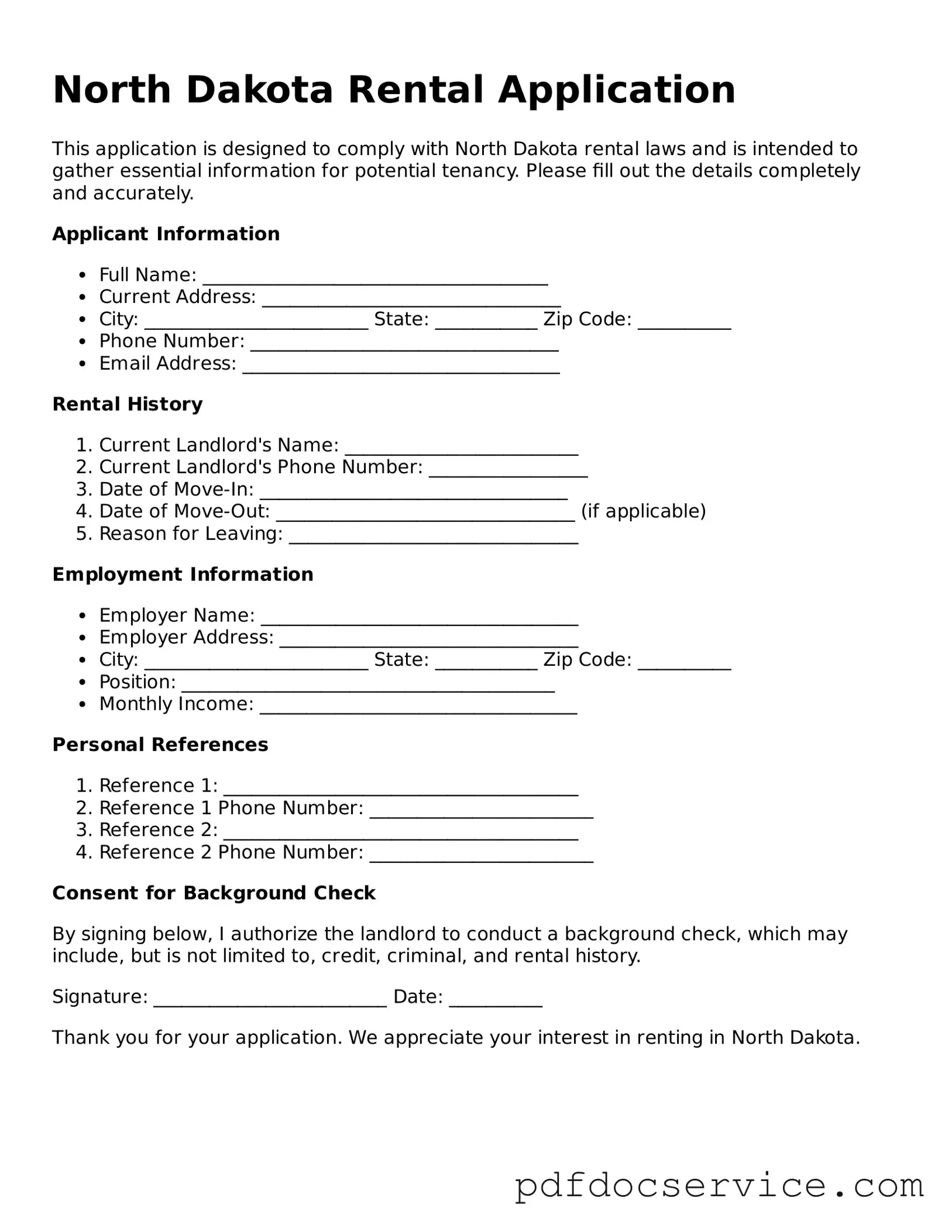Printable Rental Application Template for North Dakota
The North Dakota Rental Application form is a document that potential tenants fill out when seeking to rent a property. This form helps landlords gather important information about applicants, such as their rental history and financial background. Completing this application is a key step in the rental process for both parties involved.
Open Rental Application Editor

Printable Rental Application Template for North Dakota
Open Rental Application Editor

Open Rental Application Editor
or
Get Rental Application PDF
Finish the form now and be done
Finish Rental Application online using simple edit, save, and download steps.